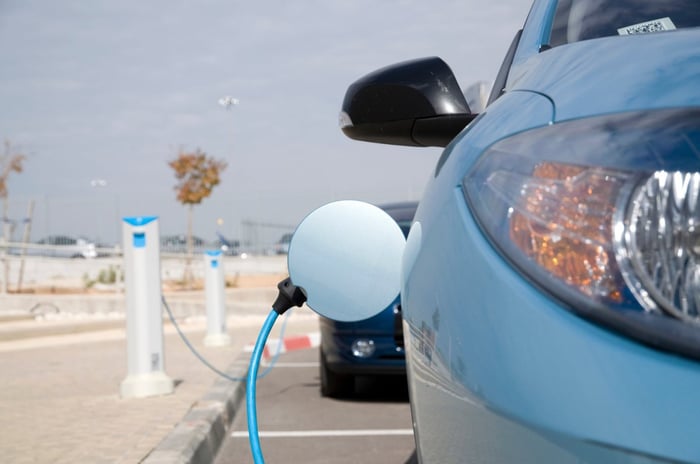Chinese electric vehicle giant BYD (BYDDY -2.62%) is reportedly in talks to buy six lithium mines in Africa, Reuters reported on Tuesday. The news agency said that it had not verified the story, which it sourced from the Chinese government-backed The Paper.
Before we dive into this topic, investors should know that investing legend Warren Buffett's Berkshire Hathaway owns a big stake in BYD. That fact alone would seem to make BYD stock well worth putting on your watch list.

Image source: Getty Images.
Does it make sense that BYD wants to buy lithium mines?
While a question mark might surround the veracity of this story, it makes perfect sense that one of the world's largest EV makers -- which is also a top maker of lithium-ion batteries -- would be interested in obtaining resources that contain lithium.
Demand for the metal has been surging because consumers are increasingly snapping up EVs, which are powered by lithium-ion batteries. Lithium's tight supply relative to demand has lit a fire under the price of the metal, leading to increased production costs for EV makers, which either purchase their batteries from suppliers or manufacture them in-house.
EV and lithium-ion battery makers are concerned that a lithium shortage could curtail their longer-term production plans, many of which are lofty.
Being as vertically integrated as possible helps companies reduce the risk of encountering supply chain constraints. So, it makes great sense that large EV makers and battery makers -- and BYD falls into both categories -- would want to own lithium-containing resources.
For this reason, I'm inclined to believe the story that BYD is interested in buying African lithium mines. At the very least, it would seem likely the company is searching for some lithium resources to acquire.
What details were included in the BYD-African lithium mines story and what can we infer?
The six lithium mines in Africa that BYD is reportedly considering acquiring have "total resources of lithium oxide at 2.5% grade estimated at more than 25 million tonnes," according to the super-brief Reuters article.
Assuming this report is accurate, we can glean two key pieces of information from it. First, the grading being stated in terms of lithium oxide content indicates that the African mines are hard-rock mines rather than brine mines. (Currently, as I recently detailed, lithium for commercial use is only extracted from either rock or brine.) Resource grading for brine mines is commonly expressed in milligrams/liter (mg/L).
Second, a 2.5% lithium oxide grade is a relatively high resource grade. No doubt, such a resource would attract the attention of potential buyers in the current lithium market.
But there's a big caveat. What's much more important than the grading of a lithium resource is the grading of the lithium reserve. A mineral reserve is the subset of a mineral resource that has been deemed currently economically viable to mine.
How many operating lithium mines are in Africa?
There was just one operating lithium mine in Africa, as of a June 2021 report by the British Geological Survey. This hard-rock mine is in Bikita, Zimbabwe.
"Many African countries (most notably Zimbabwe, Namibia, Ghana, Democratic Republic of Congo and Mali) have lithium resources and the potential for lithium mines," according to the BGS report. Moreover, it indicated that there were quite a few African lithium mining projects -- all hard rock -- at various points in the exploration and development stage.
In short, it would be a positive for BYD to obtain one or more sources of lithium. Doing so would enable the company to de-risk its supply chain and better ensure that it has enough of the metal to meet its future production goals.
